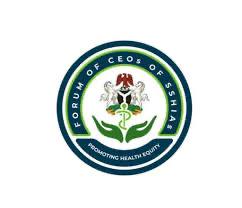A recent study conducted by a team of Nigerian scientists has shed light on a crucial link between a mother’s diet during pregnancy and the risk of high blood pressure in her offspring. The research, spearheaded by Professor Ahmed Oloyo, Head of the Department of Physiology at the College of Medicine, University of Lagos, reveals that excessive salt intake during pregnancy could significantly increase the likelihood of children developing hypertension later in life.
This groundbreaking study comes at a time when Nigeria is grappling with a surge in hypertension cases—one of the leading causes of cardiovascular diseases and early mortality in the country. While it is widely acknowledged that poor diet and sedentary lifestyles contribute to the growing burden of hypertension, the Lagos-based research highlights that the problem may actually begin in the womb.
To explore this possibility, the researchers turned to animal models, using pregnant rats to simulate the dietary conditions of human pregnancy. Some of the rats were fed a high-salt diet, while others received a diet with standard salt levels. Once the offspring reached 12 weeks of age, the team assessed their blood pressure and vascular health.
The results were telling. The young rats whose mothers consumed high amounts of salt during pregnancy showed markedly higher blood pressure compared to those from mothers on a regular diet. More concerning, however, was the discovery of impaired blood vessel function and elevated levels of inflammatory markers in the high-salt group—early warning signs of cardiovascular complications.
In an exclusive conversation with KIIN360, Professor Oloyo emphasized the everyday reality faced by many Nigerian families. “It is common practice in many homes to depend heavily on processed foods, canned products, and seasoning cubes that are high in sodium. If expectant mothers are not properly informed, they may unknowingly increase their children’s risk of developing hypertension,” he stated.
The professor stressed that this study is not just an academic exercise but a call to action. “We need to begin a national conversation around maternal nutrition. The choices made during pregnancy have far-reaching consequences that extend into the next generation. The time to intervene is now,” he said, urging policymakers to invest in public health education, enforce nutritional guidelines, and improve prenatal care across the country.
Dr Abdullahi Adejare, another member of the research team, noted that the findings challenge the misconception that hypertension is strictly an adult health issue. “Our research indicates that a mother’s salt intake during pregnancy can trigger biological changes in her child, affecting blood vessels and inflammatory responses in ways that elevate the risk of hypertension,” he explained.
Echoing similar sentiments, Dr Esther Asamudo, also part of the team and currently with the University of California, said the findings open new frontiers in maternal health advocacy. “Understanding how prenatal diets shape future health allows us to design better interventions. Healthcare professionals can now counsel pregnant women on appropriate nutrition that safeguards both their health and that of their unborn children,” she added.
The study was a collaborative effort, including contributions from the late Emeritus Professor Olusoga Sofola, Khadijat Ismail-Badmus, Santan Olley, and Dr Esther Ohihoin, all affiliated with the University of Lagos, alongside Dr Asamudo.
As the prevalence of hypertension continues to rise in Nigeria, this research underscores the urgency of tackling the issue from its roots. With maternal health at the heart of long-term disease prevention, the findings offer a timely reminder: the future of a child’s health may very well begin with what the mother puts on her plate.







